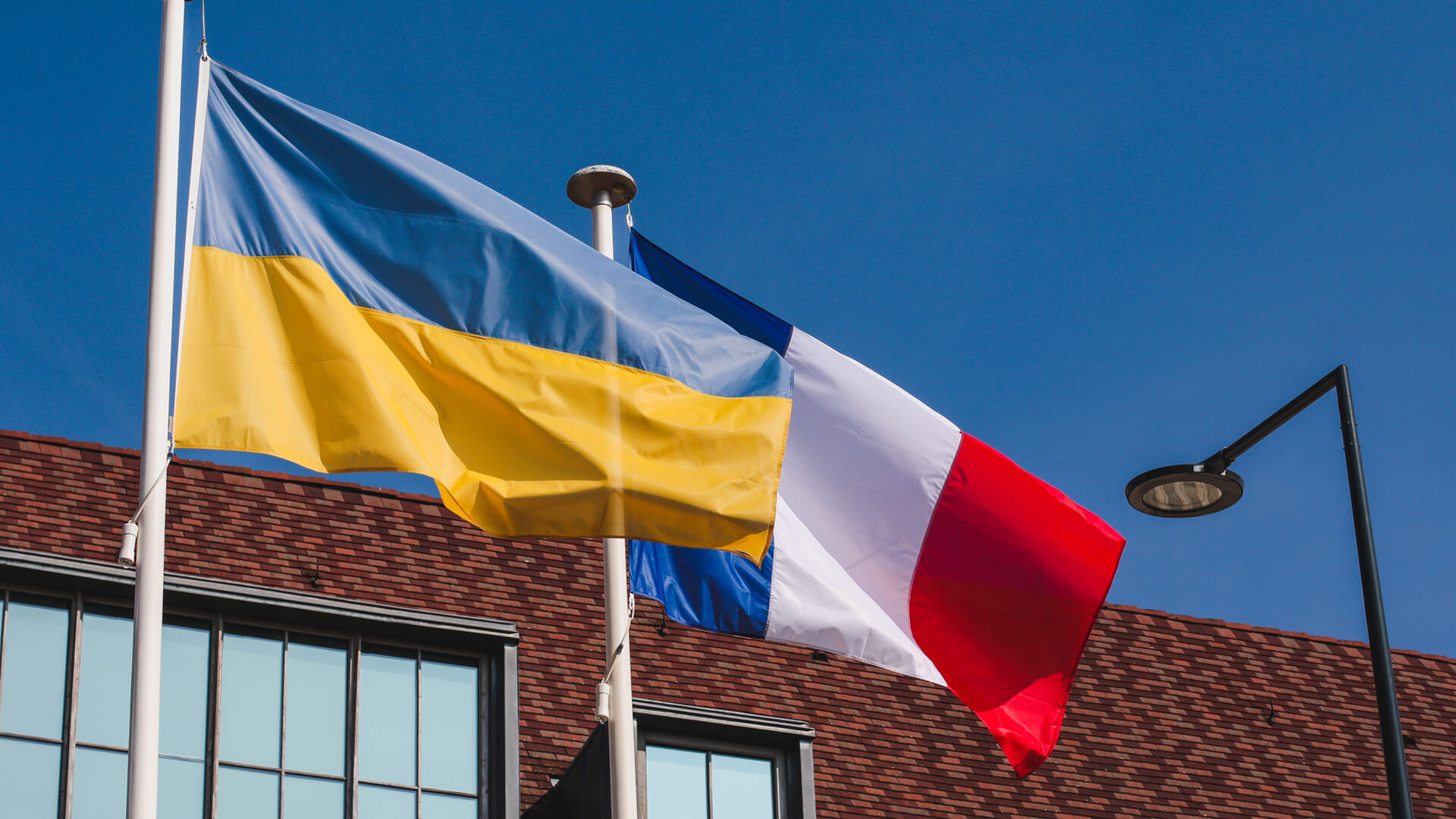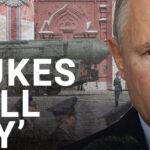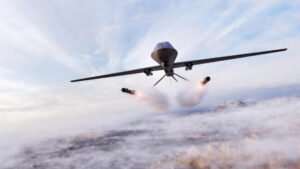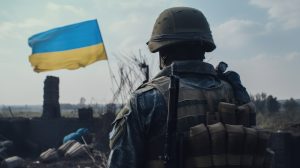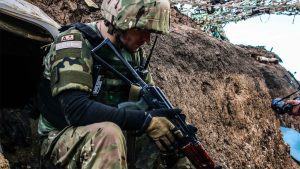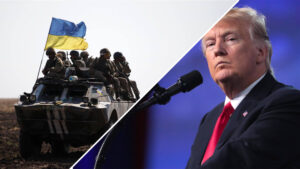There’s been recent discussions by French President Macron regarding deploying French troops to Ukraine. Is this really going to happen and why would they do this?
Given France’s nationalist stance, stable demographics, and the evolving European landscape, this appears to be a feasible endeavor. The French stand to gain some insight to tech and new tactics, some resource regulation, and the obvious strategic positioning to support Ukrainian forces and the security interests of wider Europe.
Given the relative speed with which France can make decisions and implement them (when compared to the Germans), this is likely the emergence of the French as an assertive power in European strategic conversations. This move could shake up all of Europe, so I’ll be monitoring this situation as it continues to unfold.
Here at Zeihan On Geopolitics we select a single charity to sponsor. We have two criteria:
First, we look across the world and use our skill sets to identify where the needs are most acute. Second, we look for an institution with preexisting networks for both materials gathering and aid distribution. That way we know every cent of our donation is not simply going directly to where help is needed most, but our donations serve as a force multiplier for a system already in existence. Then we give what we can.
Today, our chosen charity is a group called Medshare, which provides emergency medical services to communities in need, with a very heavy emphasis on locations facing acute crises. Medshare operates right in the thick of it. Until future notice, every cent we earn from every book we sell in every format through every retailer is going to Medshare’s Ukraine fund.
And then there’s you.
Our newsletters and videologues are not only free, they will always be free. We also will never share your contact information with anyone. All we ask is that if you find one of our releases in any way useful, that you make a donation to Medshare. Over one third of Ukraine’s pre-war population has either been forced from their homes, kidnapped and shipped to Russia, or is trying to survive in occupied lands. This is our way to help who we can. Please, join us.
TranscripT
Hey, everybody. Peter Zeihan here. Coming to you from Colorado today. We’re going to kick around with the French are doing in Europe, specifically in Ukraine. You have French President Macron, who has been recently talking about sending French troops into Ukraine. And not only is this week broken the eyes on a broader strategic discussion. It bears the question of what the hell the French are thinking, how they fit into the alliance network, how this might play out.
And I got to say, in traditional French fashion, it’s it’s interesting. So the French have a reputation well earned, I might point out, for being rather narcissistic. They’re convinced that the world revolves around them. They they believe that oftentimes the Americans are just as much of a problem as the more legitimate strategic threats, because the Americans tend to take the lead in everything because they’re providing the men and the money and the intelligence and the satellite system and the transport, you know, other pesky things.
But the French have always, always, always been at the center of decision making in Europe, largely because they’ve had a relatively strategic position out on the western edge where they’re not being constantly hit from multiple directions so they can focus their forces when they want to, not the the degree of a naval power like Britain, of course, but for a land power, they punch pretty hard and it’s kind of hard to hit them back.
Now, what this means is that the French being on the far side of Western Europe are directly impacted by the day to day goings on of the Ukraine war. And even in the worst case scenario where Ukraine falls, they’re not in the next line of attack. That would be Poland and Germany and then the low countries before you would get to France.
So from a certain point of view, the French can take an almost American approach to this and take the very long view. And that’s been shaped by their political culture, their geography, their military system. You know, this is nothing new here. But why? Why, why, why, why would they be talking about sending troops? Well, we’ve got a few things going on that are making this more and more feasible.
Number one, the very nature of Europe needs to change. So the EU, as it was originally envisioned, was an economic and trading club, but everything that allowed it to work has basically broken down in the last few years. Number one, globalization is going away. So the Europeans are losing their ability to sell on the international market bit by bit.
France, being nationalist, never really got into that. So they don’t have anything to lose. Second demographics. Most of Europe is aging so rapidly that all of the major countries basically ceased functioning as modern economies. And 5 to 15 years. But not France. France actually has needless policies and so has a pretty high birth rate or complications that come from that.
But this is not a country whose economic models in danger. Third, if Europe as an entity is going to matter at all. It has to be able to stand up for its own security concerns. And we now know very clearly that the Russians are not going to stop unless they are stopped. That means France, despite being on the far western edge, can’t take a completely hands off approach.
You can take the long view, but it can’t do nothing. You put all this together and the French see, putting boots on the ground as you create is something to very seriously consider. Number one, there’s a lot of resources, especially in agriculture in Ukraine, getting that under the European EGIS so it can be regulated by European norms is something the French like, just as it is.
Number two, technology. Ukraine has become a background in a new type of warfare using mass drones in the hands of not just strategic decision makers, but everyday troops. And if you are France, you would rather understand that before it comes to your borders. So having folks there not just to train the Ukrainians, but to be trained by the Ukrainians makes a lot of sense.
Three, whatever the future of the European Union is going to be, it’s not going to be a major trading bloc. They no longer have the population to sustain that. It’s going to be based more on politics, security, culture and identity. Well, these are things that the French are much more comfortable with. And if you can bring Ukraine into that family, it makes the overall unity of the system much stronger and more coherent.
This isn’t like the old days when the French would oppose European Union expansion because they don’t want to have to subsidize anyone. Those days are over anyway. The European Union is losing the ability to do that as the Germans age out. There’s no one left to write the check except for the French, and they don’t want to. So they’d rather change the nature of the union itself.
And then finally, there’s a leadership issue here. A very short term leadership issue under German Chancellor Schulz. Germany is basically getting dragged into a lot of strategic positions. They’ve got a fractured government made of libertarian businessmen, Greens and social Democrats. And there’s very little that they agree on. And it’s really hard for them to change their mind on any policy or take a leadership position, because before Germany can act, the coalition has to come to an agreement.
So whether it’s been on subsidies or health care or labor negotiations or the Ukraine war or EU policy, everything has just been so damn slow. And then you have France, where there’s a majority government run by a major party under a relatively airmatic leader who can make decisions and implement them very quickly. And if you put that in the context of what’s going on Ukraine right now in this conversation of troops, people are looking to Germany to set the strategic conversation at all.
They’re looking to the French and may they may not like what the French have to say. But there’s a lot of different opinions, because if you are in Estonia or Latvia or Lithuania or Finland or Sweden or Poland, well, of course we’re going to have to get involved in Ukraine. Of course, the Russians are not going to stop.
Of course, we need to consider putting boots on the ground in order to protect the Ukrainians and look out for European values to have someone on the other side of Europe and far west saying that. That’s a rallying cry, not something to argue against. So for the first time in quite some time, the French are getting some very real strategic kudos from other European countries for being aggressive as opposed to just arguing with the United States.
And then there’s the final issue of what would they do when we get there. We’re not talking about French troops going to the frontline and fighting the Russians. No, no, this is not a Napoleonic invasion. The idea is threefold. Number one, you put them there in order to repair equipment that the Ukrainians need. So it doesn’t have to get shipped all the way to Western Europe.
So speed the process up. Number two, training it both ways. The French training the Ukrainians, especially things like Special forces, the Ukrainians training the French, and especially in things like drone tech. And then third, provide a strategic backstop in places that you don’t expect to get hot but could. So you put French troops on, say, the border of Belarus or the border of Moldova, where the Russians have forces in a place called Transnistria, where they’re basically sponsored a secessionist operation 30 years ago, and they’re still there.
And that way the Ukrainian forces that are there now can redirect to the front line. So there’s a lot of reasons that we should treat this seriously. I mean, yes, it’s the French, so there’s a lot of bombast and pomposity. But this is a very, very real strategic discussion that Macron has started. And if I was a betting man, I’d say it’s going to manifest as something that is actually real before the end of this year.

